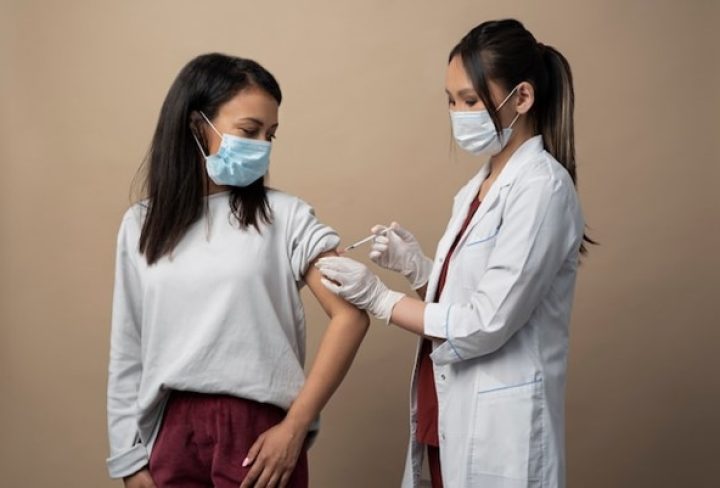Vaccination is essential in protecting children from various infectious diseases. However, for children facing special medical conditions—such as those receiving intravenous immunoglobulin (IVIG), on steroids or immunosuppressive drugs, living with HIV, or undergoing chemotherapy—careful planning is required to ensure the vaccines’ safety and effectiveness. This guide is aimed at helping parents and healthcare professionals navigate vaccination decisions for these children, including specific guidance on the BCG and polio vaccines.
1. Children Receiving Intravenous Immunoglobulin (IVIG)
IVIG therapy, commonly used to manage immune disorders, can affect how well certain vaccines work, especially live vaccines.
– Vaccines to Avoid/Delay:
Live vaccines, such as BCG, measles-mumps-rubella (MMR), varicella, and oral polio vaccine (OPV), should be avoided for a period after IVIG therapy. IVIG contains antibodies that may neutralise live vaccines, reducing their effectiveness.
– Recommended Waiting Period:
Wait 3 to 11 months after receiving IVIG before administering live vaccines. The wait time varies based on the IVIG dosage and treatment indication.
– Inactivated Vaccines:
Inactivated vaccines like inactivated polio vaccine (IPV), DTaP, and pneumococcal vaccines can be given without delay, as they are not affected by IVIG.
2. Children on Steroids
Steroid therapy can suppress the immune system, particularly when:
– The child is taking 20 mg or more of prednisone (or its equivalent) daily.
– The duration of steroid use exceeds 14 days.
– Live Vaccines:
Live vaccines, such as BCG, MMR, varicella, and OPV, should be avoided during high-dose steroid therapy and for at least one month after stopping steroids.
– Inactivated Vaccines:
Vaccines like IPV, DTaP, influenza, and pneumococcal vaccines are safe to administer during steroid therapy and pose no risk to immunocompromised children.
3. Children on Immunosuppressive Drugs
Children on immunosuppressive medications, such as methotrexate, azathioprine, or biologic drugs, are more vulnerable to infections, making vaccination schedules particularly important.
-Live Vaccines:
Avoid live vaccines, including BCG, MMR, varicella, and OPV, while the child is taking immunosuppressive drugs. Live vaccines can be administered after a waiting period of 3 to 6 months following discontinuation of the therapy.
– Inactivated Vaccines:
Inactivated vaccines such as IPV, DTaP, and pneumococcal vaccines can be given during immunosuppressive therapy. However, the immune response may be diminished, so booster doses may be necessary once the immune system recovers.
4. Children with HIV
Vaccination guidelines for children with HIV depend on their immune status, particularly CD4 cell counts.
– BCG:
BCG is contraindicated for children with symptomatic HIV or those with CD4 counts below 15%, as there is a risk of disseminated BCG disease. However, asymptomatic HIV-infected infants with higher CD4 counts may receive the BCG vaccine in areas where tuberculosis is prevalent.
– Live Vaccines (MMR, Varicella, OPV):
MMR and varicella vaccines can be administered to children with HIV if their CD4 count is ≥15% or ≥200 cells/µL. Live vaccines are contraindicated if CD4 counts fall below these thresholds.
OPV is contraindicated in all HIV-positive children due to the risk of vaccine-derived poliovirus; IPV should be used instead.
– Inactivated Vaccines:
Inactivated vaccines, such as IPV, influenza, pneumococcal, and hepatitis B vaccines, should be administered following the standard vaccination schedule. Influenza and pneumococcal vaccines are particularly important due to the increased risks these infections pose to HIV-positive children.
5. Children Undergoing Chemotherapy
Children undergoing chemotherapy are immunosuppressed, making them more susceptible to infections. Vaccination planning must be adapted to protect them during and after treatment.
– Live Vaccines:
Live vaccines such as BCG, MMR, varicella, and OPV should be avoided during chemotherapy and for at least 6 months following the end of treatment. Administering live vaccines during this time could result in vaccine-strain infections.
– Inactivated Vaccines:
Inactivated vaccines such as IPV, influenza, pneumococcal, and hepatitis B can be given during chemotherapy, though the immune response may be weaker. Booster doses may be needed once chemotherapy is completed.
– Post-Chemotherapy Vaccination:
Live vaccines can be given after the child’s immune system has recovered, usually 6–12 months after chemotherapy ends.
6. Special Considerations for BCG and Polio Vaccines
– BCG Vaccine:
The BCG vaccine should be avoided in immunocompromised children, such as those with HIV or on immunosuppressive therapy, due to the risk of severe complications. If required, BCG should only be administered when immune function is stable or mildly compromised.
– Polio Vaccine (IPV and OPV):
OPV is a live vaccine and should be avoided in children who are immunocompromised or HIV-positive. IPV is the safer alternative for these children, as it does not carry the risk of vaccine-derived poliovirus.
Safe Vaccines for Immunocompromised Children
– Inactivated vaccines, such as IPV, DTaP, Hib, and hepatitis B, are safe for immunocompromised children.
– Annual influenza vaccines (inactivated) are recommended and safe for immunocompromised children.
– Pneumococcal vaccines (PCV13 and PPSV23) are vital for children at high risk of pneumococcal infections.
General Guidelines for Vaccination in Special Circumstances
1. Consult Healthcare Providers: Always consult your healthcare provider to determine the safest and most appropriate vaccination schedule for your child.
2. Immune Recovery Check: Ensure that your child’s immune system has recovered before administering live vaccines after chemotherapy or immunosuppressive therapy.
3. Booster Doses: Children with weakened immune systems may require additional booster doses for adequate protection.
Careful planning and collaboration with healthcare professionals ensure that vaccination remains a critical part of protecting children with special medical circumstances from preventable diseases.

